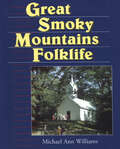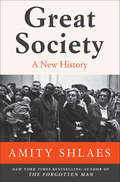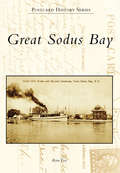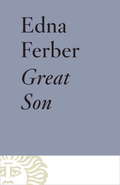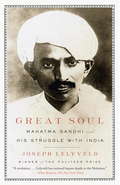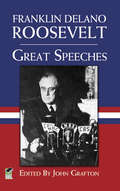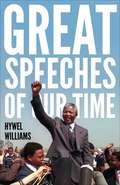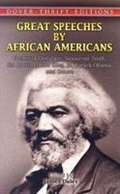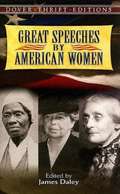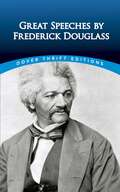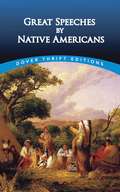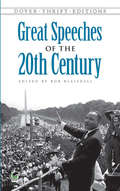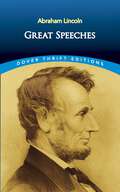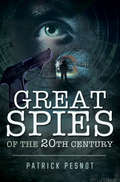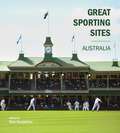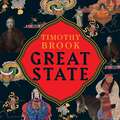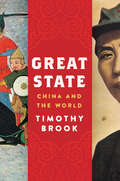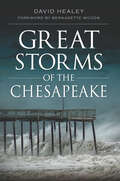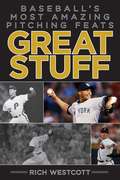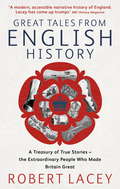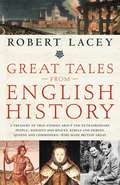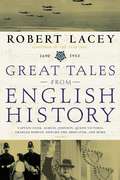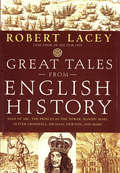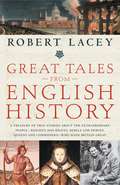- Table View
- List View
Great Smoky Mountains Folklife
by Michael Ann WilliamsThe Great Smoky Mountains, at the border of eastern Tennessee and western North Carolina, are among the highest peaks of the southern Appalachian chain. Although this area shares much with the cultural traditions of all southern Appalachia, the folklife here has been uniquely shaped by historical events, including the Cherokee Removal of the 1830s and the creation of the Great Smoky Mountain National Park a century later. This book surveying the rich folklife of this special place in the American South offers a view of the culture as it has been defined and changed by scholars, missionaries, the federal government, tourists, and people of the region themselves. Here is an overview of the history of a beautiful landscape, one that examines the character typified by its early settlers, by the displacement of the people, and by the manner in which the folklife was discovered and defined during the nineteenth and twentieth centuries. Here also is an examination of various folk traditions and a study of how they have changed and evolved.
Great Society: A New History
by Amity ShlaesThe New York Times bestselling author of The Forgotten Man and Coolidge offers a stunning revision of our last great period of idealism, the 1960s, with burning relevance for our contemporary challenges."Great Society is accurate history that reads like a novel, covering the high hopes and catastrophic missteps of our well-meaning leaders." —Alan GreenspanToday, a battle rages in our country. Many Americans are attracted to socialism and economic redistribution while opponents of those ideas argue for purer capitalism. In the 1960s, Americans sought the same goals many seek now: an end to poverty, higher standards of living for the middle class, a better environment and more access to health care and education. Then, too, we debated socialism and capitalism, public sector reform versus private sector advancement. Time and again, whether under John F. Kennedy, Lyndon Johnson, or Richard Nixon, the country chose the public sector. Yet the targets of our idealism proved elusive. What’s more, Johnson’s and Nixon’s programs shackled millions of families in permanent government dependence. Ironically, Shlaes argues, the costs of entitlement commitments made a half century ago preclude the very reforms that Americans will need in coming decades.In Great Society, Shlaes offers a powerful companion to her legendary history of the 1930s, The Forgotten Man, and shows that in fact there was scant difference between two presidents we consider opposites: Johnson and Nixon. Just as technocratic military planning by “the Best and the Brightest” made failure in Vietnam inevitable, so planning by a team of the domestic best and brightest guaranteed fiasco at home. At once history and biography, Great Society sketches moving portraits of the characters in this transformative period, from U.S. Presidents to the visionary UAW leader Walter Reuther, the founders of Intel, and Federal Reserve chairmen William McChesney Martin and Arthur Burns. Great Society casts new light on other figures too, from Ronald Reagan, then governor of California, to the socialist Michael Harrington and the protest movement leader Tom Hayden. Drawing on her classic economic expertise and deep historical knowledge, Shlaes upends the traditional narrative of the era, providing a damning indictment of the consequences of thoughtless idealism with striking relevance for today. Great Society captures a dramatic contest with lessons both dark and bright for our own time.
Great Sodus Bay (Postcard History)
by Rosa FoxGreat Sodus Bay graces the southern shore of Lake Ontario. Known as Bay of the Cayugas to early French explorers and Assorodus (Silvery Waters) to Native American Indians, Sodus Bay is bountiful in beauty and history. Host to many creative souls, entrepreneurs, and seekers of nature, relaxation, and recreation, Great Sodus Bay has captured the hearts of all who visit. The images in this volume provide a tour of the communities and commercial developments, as well as historic lighthouses, vintage boats, and architecture. Take a nostalgic look at Great Sodus Bay from 1890 to 1930--an era of newfound popularity as Sodus Bay developed into a destination resort.
Great Son
by Edna FerberOriginally published in 1945, the triumphant novel of a great American family dynasty in the Pacific Northwest, by Pulitzer Prize winner Edna Ferber.Great Son tells the story of four generations of the Melendys, a family grown rich and ill at ease, who watched Seattle grow from a village to a skyscraper town, who felt the rhythm and sweep of America in the building, and the call of the Alaskan gold fields. There is Madam Exact Melendy, who saw Seattle grow from an Indian camp to the wonder city of the Northwest, and Vaughan, her son, who wrested three fortunes from the wilderness, but yielded to the domination of three women. Finally, there is Mike Melendy, a clear-eyed representative of the new generation, who, feeling there was no place to go but up, took to flying. With her signature colorful prose, Edna Ferber brings to life the triumphant story of the magnificent Melendy men and women.
Great Soul: Mahatma Gandhi and His Struggle with India
by Joseph LelyveldA highly original, stirring book on Mahatma Gandhi that deepens our sense of his achievements and disappointments--his success in seizing India's imagination and shaping its independence struggle as a mass movement, his recognition late in life that few of his followers paid more than lip service to his ambitious goals of social justice for the country's minorities, outcasts, and rural poor.Pulitzer Prize-winner Joseph Lelyveld shows in vivid, unmatched detail how Gandhi's sense of mission, social values, and philosophy of nonviolent resistance were shaped on another subcontinent--during two decades in South Africa--and then tested by an India that quickly learned to revere him as a Mahatma, or "Great Soul," while following him only a small part of the way to the social transformation he envisioned. The man himself emerges as one of history's most remarkable self-creations, a prosperous lawyer who became an ascetic in a loincloth wholly dedicated to political and social action. Lelyveld leads us step-by-step through the heroic--and tragic--last months of this selfless leader's long campaign when his nonviolent efforts culminated in the partition of India, the creation of Pakistan, and a bloodbath of ethnic cleansing that ended only with his own assassination. India and its politicians were ready to place Gandhi on a pedestal as "Father of the Nation" but were less inclined to embrace his teachings. Muslim support, crucial in his rise to leadership, soon waned, and the oppressed untouchables--for whom Gandhi spoke to Hindus as a whole--produced their own leaders. Here is a vital, brilliant reconsideration of Gandhi's extraordinary struggles on two continents, of his fierce but, finally, unfulfilled hopes, and of his ever-evolving legacy, which more than six decades after his death still ensures his place as India's social conscience--and not just India's.
Great Speeches (Dover Thrift Editions)
by Franklin Delano RooseveltIn the relatively short span of 25 years -- from his first national campaign in 1920 to his death in the first year of his fourth term as President in 1945 -- Franklin Delano Roosevelt delivered hundreds of speeches, many of them masterly orations.Perhaps the finest speechmaker in American history, FDR was a consummate expert at reading his audience. He could be dazzlingly informal, imperiously statesmanlike, witheringly sarcastic, stern, and serious, and when the occasion permitted, outright funny. Though his audiences often included more than 30 million listeners in America and millions more around the world, he succeeded in doing what so many speakers strive for and so few accomplish -- he left his listeners with the feeling that he was speaking to them alone.This representative collection of 27 of FDR's finest speeches recalls a number of momentous events in his political career and the life of the nation. Included are his dramatic and inspirational First Inaugural Address (March 4, 1933) in which he told the nation that "the only thing we have to fear is fear itself"; his first "Fireside Chat" (March 12, 1933) over the radio; his dramatic War Message to Congress (December 8, 1941) following the Japanese attack on Pearl Harbor ("a day that will live in infamy"); his Fourth Inaugural Address (January 20, 1945); and many more.Assembled here in one convenient volume, these speeches provide students of history, politics, and rhetoric, as well as general readers, with an immensely useful reference, a wealth of fine oration, and a valuable window on the Roosevelt years.Includes a selection from the Common Core State Standards Initiative: "State of the Union Address."
Great Speeches Of Our Time
by Hywel Williams"Let each know that for each the body, the mind and the soul have been freed to fulfill themselves."These powerful words, spoken by Nelson Mandela in his inaugural address as the new president of South Africa, are taken from just one of the forty important and thought-provoking speeches in this collection.Ranging from 1945 to the present day, they provide an important insight into the modern world. Inspirational speeches by Winston Churchill, Mikhail Gorbachev, Martin Luther King, Barack Obama and many others are supplemented with biographies of each speaker, as well an exploration of their words' significance and an historical account of the consequences of their oratory.This is a history of the recent and contemporary world told through the speeches that shaped it.
Great Speeches by African Americans: Frederick Douglass, Sojourner Truth, Dr. Martin Luther King, Jr. , Barack Obama, and Others
by James DaleyThis anthology comprises speeches by influential figures in the history of African-American culture and politics. Contents include the famous "Ain't I a Woman?" speech by Sojourner Truth, Frederick Douglass' immortal "What, to the Slave, Is the Fourth of July?" Martin Luther King, Jr.'s "I Have a Dream," Barack Obama's "Knox College Commencement Address," and many others.
Great Speeches by American Women
by James DaleyThis book contains 21 legendary speeches from the country's most inspirational female voices, including Sojourner Truth, Susan B. Anthony, Eleanor Roosevelt, Hillary Rodham Clinton, Nancy Pelosi, and many others.
Great Speeches by Frederick Douglass: Frederick Douglass, Sojourner Truth, Dr. Martin Luther King, Jr. , Barack Obama, And Others (Dover Thrift Editions)
by Frederick Douglass James DaleyAuthor, abolitionist, political activist, and philosopher, Frederick Douglass was a pivotal figure in the decades of struggle leading up to the Civil War and the Reconstruction era. This inexpensive compilation of his speeches adds vital detail to the portrait of a great historical figure. Featured addresses include "What to the Slave is the Fourth of July?" which was delivered on July 5, 1852, more than ten years before the Emancipation Proclamation. "Had I the ability, and could reach the nation's ear, I would, today, pour out a fiery stream of biting ridicule, blasting reproach, withering sarcasm, and stern rebuke," Douglass assured his listeners, "For it is not light that is needed, but fire; it is not the gentle shower, but thunder. We need the storm, the whirlwind, and the earthquake." Other eloquent and dramatic orations include "Self-Made Men," first delivered in 1859, which defines the principles behind individual success, and "The Church and Prejudice," delivered at the Plymouth County Anti-Slavery Society in 1841.
Great Speeches by Native Americans (Dover Thrift Editions Ser.)
by Bob BlaisdellRemarkable for their eloquence and depth of feeling, these 82 speeches encompass 5 centuries of Indian encounters with nonindigenous peoples. Speakers include Chief Joseph, Sitting Bull, Tecumseh, Seattle, Geronimo, Crazy Horse, and many lesser-known leaders, whose compelling words are graced by forceful metaphors and vivid imagery.
Great Speeches of the 20th Century
by Bob BlaisdellA great speech can stir the soul -- and move a nation. This compact and affordable anthology gathers complete speeches and selected excerpts from some of the twentieth century's most memorable addresses. Writers and speakers in search of memorable quotations will appreciate this collection, as will any reader seeking historical wisdom and inspiration. Featured speakers include Winston Churchill, rousing the British to defend their lives and homes against the Nazis; Mohandas Gandhi, advocating non-violent resistance to deplorable living conditions; and Franklin Delano Roosevelt, calming the nation's fears during the Great Depression. Additional orations include those of Barack Obama, Martin Luther King, Malcolm X, Ronald Reagan, Elie Wiesel, the Dalai Lama, César Chávez, and many others. Includes 3 selections from the Common Core State Standards Initiative: "Blood, Toil, Tears and Sweat: Address to Parliament on May 13th, 1940," "I Have a Dream," and "Remarks to the Senate in Support of a Declaration of Conscience."
Great Speeches: Great Speeches By Abraham Lincoln (Dover Thrift Editions)
by Bob BlaisdellFor someone who claimed he had been educated by "littles"--a little now and a little then--Abraham Lincoln displayed a remarkable facility in his use of the written word. The simple yet memorable eloquence of his speeches, proclamations and personal correspondence is recorded here in a representative collection of 16 documents.This volume contains, complete and unabridged, the Address Before the Young Men's Lyceum of Springfield, Illinois (1838), which emphasized a theme Lincoln was to return to repeatedly, namely, the capacity of a people to govern themselves; the "House Divided" speech at the Republican State Convention in Illinois (1858); the First Inaugural Address (1861), in which he appealed to the people of an already divided union for sectional harmony; the Gettysburg Address (1863), a speech delivered at ceremonies dedicating a part of the Gettysburg battlefield as a cemetery; the Letter to Mrs. Bixby (1864), expressing Lincoln's regrets over the wartime deaths of her five sons; the Second Inaugural Address (March 1865), urging a post-war nation to "bind up its wounds" and show "charity for all"; and his Last Public Address (April 11, 1865). New notes place the speeches and other documents in their respective historical contexts.An invaluable reference for history students, this important volume will also fascinate admirers of Abraham Lincoln, Americana enthusiasts, Civil War buffs and any lover of the finely crafted phrase.
Great Spies of the 20th Century
by Patrick PesnotHeroes to some, traitors to others, spies and intelligence officers continue to fascinate and enthral us with their abilities to operate secretly in the shadows. With these mini-biographies of twenty agents of various nationalities (including members of the DGSE, KGB, CIA, MI6 and Mossad), Patrick Pesnot and 'Mr X' bring the reader as close as possible into the world of espionage, though a panorama of intelligence history.Among the best known of these agents, the reader will find Aldrich Ames, an American accused of spying for the KGB; Eli Cohen, the Israeli spy best known for his espionage work in Syria and Klaus Fuchs, the German-born British agent who helped the USSR to manufacture its atomic bomb in 1949.
Great Sporting Sites: Australia
by Glen HumphriesDiscover the iconic backdrops of Australia's legendary sporting feats in this fully illustrated hardback book. From the fabled MCG to Mount Panorama and the legendary Gabba to Constitution Dock, discover the stories, legends and moments that make these places sacred. A must-read for fans, history buffs and travellers seeking Australia's sporting soul.Great Sporting Sites: Australia showcases the iconic fields, racetracks, and stadiums that reflect the nation's passion for sport. From the renowned Melbourne Cricket Ground (MCG) and Mount Panorama to the legendary Gabba and Constitution Dock, explore the stories, legends, and moments that make these venues sacred. This is a must-read for fans, history enthusiasts and travellers looking to connect with Australia's sporting spirit.
Great State: China and the World
by Timothy BrookChina is one of the oldest states in the world. It achieved its approximate current borders with the Ascendancy of the Yuan dynasty in the 13th century, and despite the passing of one Imperial dynasty to the next, it has maintained them for the eight centuries since. Even the European colonial powers at the height of their power could not move past coastal enclaves. Thus, China remained China through the Ming, the Qing, the Republic, the Occupation, and Communism.But, despite the desires of some of the most powerful people in the Great State through the ages, China has never been alone in the world. It has had to contend with invaders from the steppe and the challenges posed by foreign traders and imperialists. Indeed, its rulers for the majority of the last eight centuries have not been Chinese.Timothy Brook examines China's relationship with the world from the Yuan through to the present by following the stories of ordinary and extraordinary people navigating the spaces where China met and meets the world. Bureaucrats, horse traders, spiritual leaders, explorers, pirates, emperors, invaders, migrant workers, traitors, and visionaries: this is a history of China as no one has told it before.
Great State: China and the World
by Timothy BrookThe world-renowned scholar and author of Vermeer’s Hat does for China what Mary Beard did for Rome in SPQR: Timothy Brook analyzes the last eight centuries of China’s relationship with the world in this magnificent history that brings together accounts from civil servants, horse traders, spiritual leaders, explorers, pirates, emperors, migrant workers, invaders, visionaries, and traitors—creating a multifaceted portrait of this highly misunderstood nation.China is one of the oldest states in the world. It achieved its approximate current borders with the Ascendancy of the Yuan dynasty in the thirteenth century, and despite the passing of one Imperial dynasty to the next, has maintained them for the eight centuries since. China remained China through the Ming, the Qing, the Republic, the Occupation, and Communism. But despite the desires of some of the most powerful people in the Great State through the ages, China has never been alone in the world. It has had to contend with invaders as well as foreign traders and imperialists. Its rulers for the majority of the last eight centuries have not been Chinese.China became a mega-state not by conquering others, Timothy Brook contends, but rather by being conquered by others and then claiming right of succession to the empires of those Great States. What the Mongols and Manchu ruling families wrought, the Chinese ruling families of the Ming, the Republic, and the People’s Republic, have perpetuated. Yet a contemporary Chinese idea of a ‘fatherland’ that is, and always has been, completely and naturally Chinese persists. Brook argues that China, like everywhere, is the outcome of history, and like every state, rests on its capacities to conquer and suppress.In The Great State, Brook examines China’s relationship with the world at large for the first time, from the Yuan through to the present, by following the stories of ordinary and extraordinary people navigating the spaces where China met, and continues to meet, the world. The Great State includes black-and-white photos throughout.
Great Storms of the Chesapeake (Disaster Ser.)
by David HealeyDiscover the hurricanes, blizzards, and historic floods that have shaped the history of the Chesapeake Bay. Even before John Smith's crew weathered its first squall, the Chesapeake Bay and its tributaries had been ravaged by every type of storm imaginable. A 1769 hurricane altered the course of history, demolishing the shipping channels of Charlestown and making Baltimore the dominant port. A once-in-five-hundred-years storm, Tropical Storm Agnes, left more than seventy people dead and devastated the ecology of the bay. Before the blizzards of 2009 and 2010, the snowfall record was held by the combination of the Great Eastern Blizzard of 1899, which blew the water out of the bay, and the Great White Hurricane, which stranded the oyster fleet of Baltimore in feet of ice. Join author David Healey as he keeps an eye to the red horizon and chronicles the most remarkable storms to churn the waters of the Chesapeake Bay. Includes photos and illustrations
Great Stuff: Baseball?s Most Amazing Pitching Feats
by Rich Westcott Paul HagenWho never heard of Johnny Vander Meer's back-to-back no-hitters? Or Christy Mathewson's three shutouts in one World Series? Or Steve Carlton winning 27 games for a last-place team that won a total of only 59 games? These and a variety of other pitching feats comprise the contents of Rich Westcott's latest book, One of a Kind: Baseball's Greatest Pitching Feats.However, this is not a book that focuses on career records. Nor does it concentrate only on the great pitchers of the game. Rather, this is a book that pays tribute to special achievements, some of which were performed in one game, others of which took place during one season, and still others that were an accumulation of related accomplishments performed over an extended period.In their own way, all were very special. None of these feats was ever duplicated. Each one stands alone as a singular achievement. From Carl Hubbell, who won 24 games in a row; to Bob Feller, who threw 15 strikeouts in his Major League debut at the age of 17; to Nolan Ryan, owner of seven no-hitters. A seasoned baseball writer, Westcott explores these feats and many more in One of a Kind .
Great Tales From English History: Cheddar Man to DNA
by Robert LaceyFrom ancient times to the present day, the story of England has been laced with drama, intrigue, courage and passion - a rich and vibrant narrative of heroes and villains, kings and rebels, artists and highwaymen, bishops and scientists. Now, in Great Tales of English History, Robert Lacey captures one hundred of the most pivotal moments: the stories and extraordinary characters who helped shape a nation. This first volume begins in 7150 BC with the life and death of Cheddar Man and ends in 1381with Wat Tyler and the Peasants' Revolt. We meet the Greek navigator Pytheus, whose description of the Celts as prettanike (the 'painted people') yielded the Latin word Britannici. We witness the Roman victory celebrations of AD 43, where a squadron of elephants were paraded through Colchester. And we visit the New Forest, in 1100, and the mysterious shooting of King William Rufus. Packed with insight, humour and fascinating detail, Robert Lacey brings the stories that made England brilliantly to life. From Ethelred the Unready to Richard the Lionheart, the Venerable Bede to the Black Prince, this is, quite simply, history as history should be told.
Great Tales from English History: A Treasury of True Stories about the Extraordinary People - Knights and Knaves, Rebels and Heroes, Queens and Commoners - Who Made Britain Great
by Robert Lacey<p>A feast for history lovers--the whole colorful parade of English history brilliantly captured in a single volume. <p>From ancient times to the present day, the story of England has been laced with drama, intrigue, courage, and passion. In GREAT TALES FROM ENGLISH HISTORY, Robert Lacey recounts the remarkable episodes that shaped a nation as only a great storyteller can: by combining impeccable accuracy with the timeless drama that has made these tales live for centuries. <p>This new paperback edition is encyclopedic in scope, gathering together all of Robert Lacey's great tales previously published in three separate hardcover volumes. <p>The book comprises 154 delectable stories, each brimming with insight, humor, and fascinating detail. Bite-sized history at its best, GREAT TALES FROM ENGLISH HISTORY belongs on every Anglophile's bookshelf.</p>
Great Tales from English History: Captain Cook, Samuel Johnson, Queen Victoria, Charles Darwin, Edward the Abdicator, and More
by Robert Lacey- With insight, humor and fascinating detail, Robert Lacey brings brilliantly to life the stories that made England. From Ethelred the Unready to Richard the Lionheart, the Venerable Bede to Piers the Ploughman, this is, quite simply, history as history should be told.- Lacey's bestseller "The Year 1000 has netted 120,000 copies in hardcover and paperback combined.- In the bestselling tradition of "How the Irish Saved Civilization, this is popular, accessible, bite-sized history at its best.
Great Tales from English History: Joan of Arc, The Princes in the Tower, Bloody Mary, Oliver Cromwell, Sir Isaac Newton, and More (Book #2)
by Robert LaceyWith insight, humor and fascinating detail, Robert Lacey brings brilliantly to life the stories that made England.
Great Tales from English History: The Truth About King Arthur, Lady Godiva, Richard the Lionheart, and More
by Robert LaceyFrom ancient times to the present day, the story of England has been laced with drama, intrigue, courage, and passion-a rich and vibrant narrative of heroes and villains, kings and rebels, artists and highwaymen, bishops and scientists. Now, in Great Tales from English History, Robert Lacey tells those remarkable stories as only a great writer can: combining impeccable accuracy with the timeless drama that has made these stories live for centuries.This volume begins in 7150 BC with the life and death of Cheddar Man and ends in 1381 with Wat Tyler and the Peasants' Revolt. We meet the Greek navigator Pytheas, whose description of the woad-painted Celts yielded pretanniki ("the land of the painted people"), which became the Latin word Britannia. We learn what the storytellers really meant when they described Lady Godiva's "naked" ride through town. And we discover the truth behind the tales of King Arthur and the infamous Hobbehod, later known as Robin Hood.With insight, humor, and fascinating detail, Robert Lacey brings brilliantly to life the stories that made England. From Ethelred the Unready to Richard the Lionheart, the Venerable
